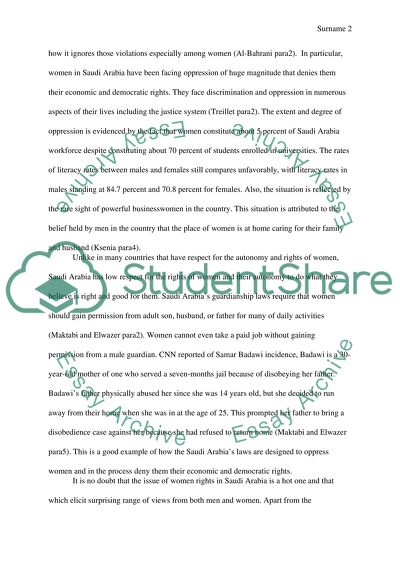Cite this document
(“Oppression of women in KSA Research Paper Example | Topics and Well Written Essays - 2000 words”, n.d.)
Retrieved from https://studentshare.org/sociology/1461497-oppression-of-women-in-ksa
Retrieved from https://studentshare.org/sociology/1461497-oppression-of-women-in-ksa
(Oppression of Women in KSA Research Paper Example | Topics and Well Written Essays - 2000 Words)
https://studentshare.org/sociology/1461497-oppression-of-women-in-ksa.
https://studentshare.org/sociology/1461497-oppression-of-women-in-ksa.
“Oppression of Women in KSA Research Paper Example | Topics and Well Written Essays - 2000 Words”, n.d. https://studentshare.org/sociology/1461497-oppression-of-women-in-ksa.


